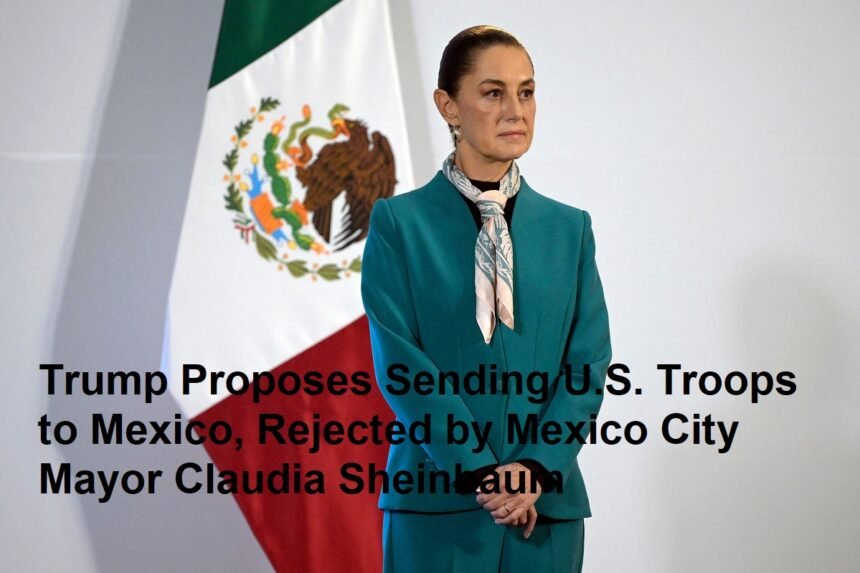Former U.S. President Donald Trump recently proposed deploying American troops to Mexico as part of a strategy to combat drug cartels and curb illegal immigration. However, this proposal was firmly rejected by Claudia Sheinbaum, the Mayor of Mexico City, highlighting tensions between the two countries over security and sovereignty issues.
Trump’s Proposal
Donald Trump, known for his hardline stance on immigration and border security during his presidency, suggested that the United States should send military forces into Mexico to assist in dismantling drug trafficking organizations and securing the southern border. He argued that such a move was necessary to protect American citizens and reduce the flow of illegal drugs and migrants into the U.S.
Trump’s proposal included deploying troops to key regions in Mexico where cartel activity is most intense, aiming to disrupt their operations and restore order. He claimed that Mexico’s government had been ineffective in addressing the drug violence and that U.S. intervention was justified.
Mexico City’s Response
Claudia Sheinbaum, the Mayor of Mexico City and a prominent political figure, strongly opposed the idea. She emphasized Mexico’s sovereignty and the importance of respecting national borders. Sheinbaum stated that Mexico has its own security forces and strategies to combat organized crime and that foreign military presence would be unacceptable.
She also highlighted the potential diplomatic fallout and the risk of escalating tensions between the two countries. Sheinbaum called for cooperation based on mutual respect and partnership rather than unilateral military actions.
Broader Context
The proposal comes amid ongoing challenges related to drug trafficking, violence, and migration along the U.S.-Mexico border. Both countries have struggled with cartel-related violence, which has caused significant social and economic impacts.
While the U.S. has provided aid and support to Mexico through various programs, the idea of deploying troops on Mexican soil is unprecedented and controversial. It raises questions about international law, sovereignty, and the effectiveness of military solutions to complex social issues.
Political Reactions
The proposal received mixed reactions within the United States. Some supporters of Trump’s approach praised the tough stance on border security, while critics warned that military intervention could worsen relations and lead to unintended consequences.
In Mexico, political leaders across the spectrum echoed Sheinbaum’s rejection, emphasizing the need for collaborative efforts and respect for sovereignty.
Diplomatic Implications
The incident underscores the delicate nature of U.S.-Mexico relations, particularly regarding security cooperation. It highlights the challenges of addressing transnational issues like drug trafficking and migration without infringing on national sovereignty.
Both countries continue to engage in dialogue to find balanced solutions that enhance security while maintaining diplomatic ties.
In summary, Donald Trump’s proposal to send U.S. troops to Mexico to combat drug cartels was rejected by Mexico City Mayor Claudia Sheinbaum, who emphasized sovereignty and called for respectful cooperation. The episode reflects ongoing complexities in U.S.-Mexico security relations.









